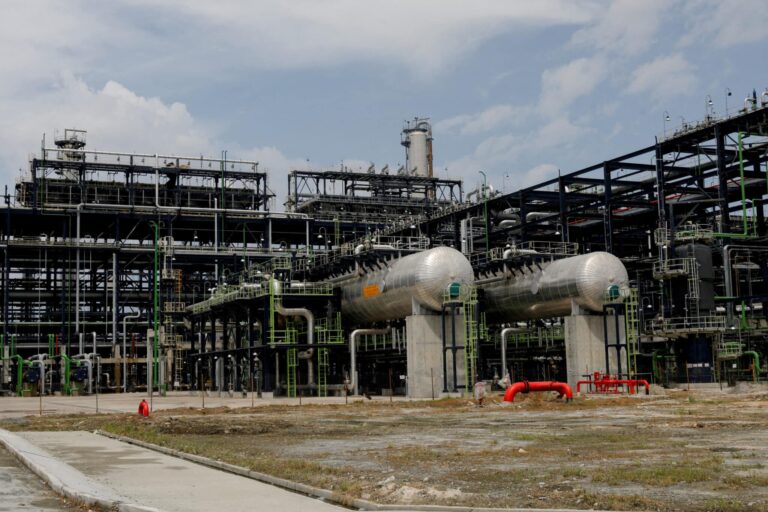Ghana has emerged as a new supplier of crude oil to Nigeria’s $20 billion Dangote Refinery, marking a significant expansion of the plant’s sourcing strategy as it seeks to stabilise operations and maintain output growth.
The inclusion of Ghana’s Sankofa crude, a medium-sweet blend, reflects the facility’s decision to secure more flexible feedstock arrangements. Recent data show the refinery processed around 610,000 barrels per day in August, approaching its maximum capacity of 650,000 bpd — a notable jump from early-year levels near 400,000 bpd.
Diversification Beyond Nigerian Crude
Although the refinery was originally expected to rely almost entirely on Nigerian production, market conditions and supply bottlenecks have encouraged a broader intake strategy. Cargoes from Brazil, Angola, Equatorial Guinea, and the United States have already featured in the mix, and Ghana now joins that list.
According to analytics group Kpler, August shipments included five Nigerian Suezmaxes, two U.S. supertankers, and one Ghanaian delivery. Analysts say the decision to incorporate regional suppliers reflects both logistical pragmatism and an effort to protect against volatility in local supply.
Output Strengthens Despite Early Doubts
Since it came onstream, questions have persisted about the refinery’s technical resilience. However, independent assessments suggest it is operating with greater consistency than in its early months. Energy intelligence firm Argus reported throughput at roughly 70% of capacity in August, while industry commentators noted that the facility is now outperforming expectations for 2025.
Strategic Balance Going Forward
Company officials have reiterated that Nigerian crude remains central to long-term plans, with a goal of eventually transitioning fully to domestic supply. Yet the immediate strategy places a premium on operational reliability, even if that requires reliance on foreign blends in the short term.
By integrating Ghanaian shipments, the refinery is signalling a more flexible approach that balances national ambitions with commercial realities. The adjustment highlights the complexities of scaling Africa’s largest refining project while assuring stakeholders of its role in advancing Nigeria’s energy security.


